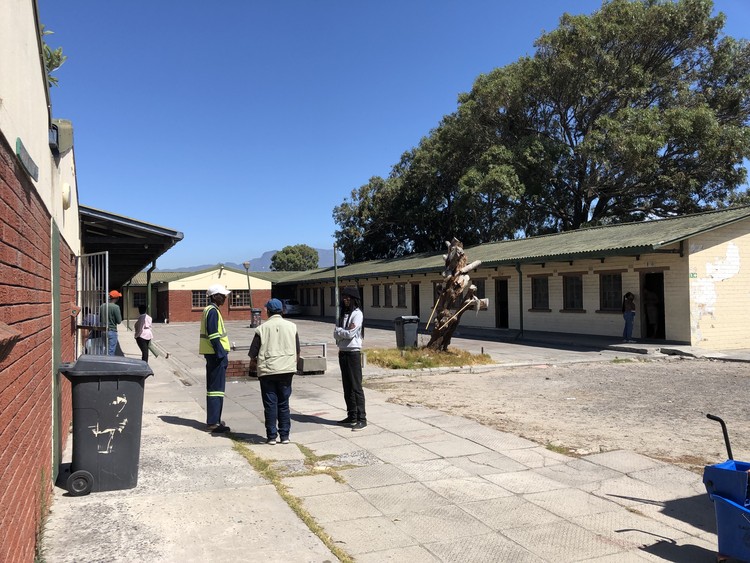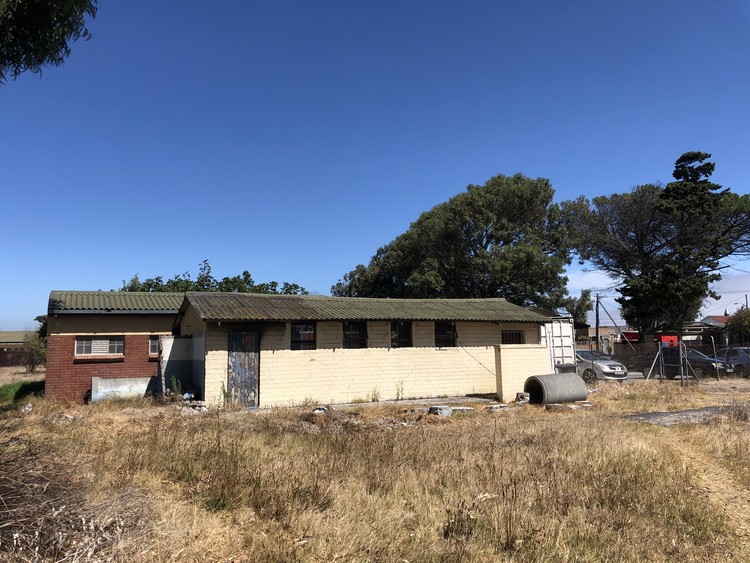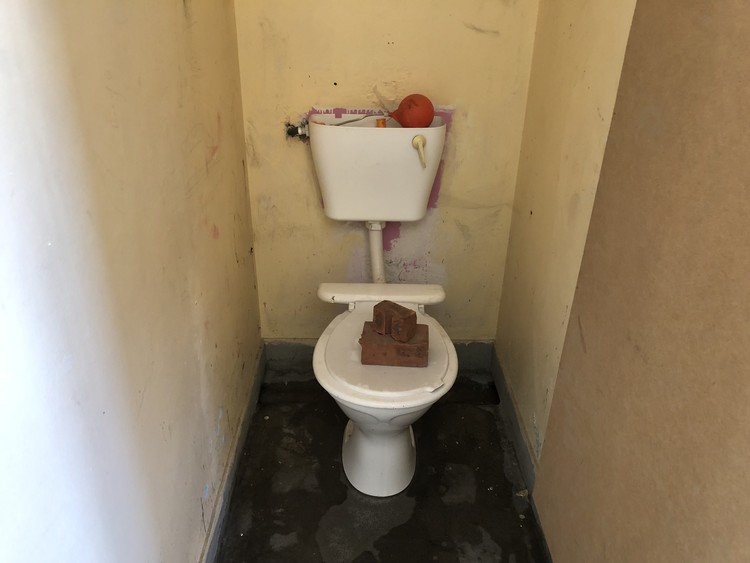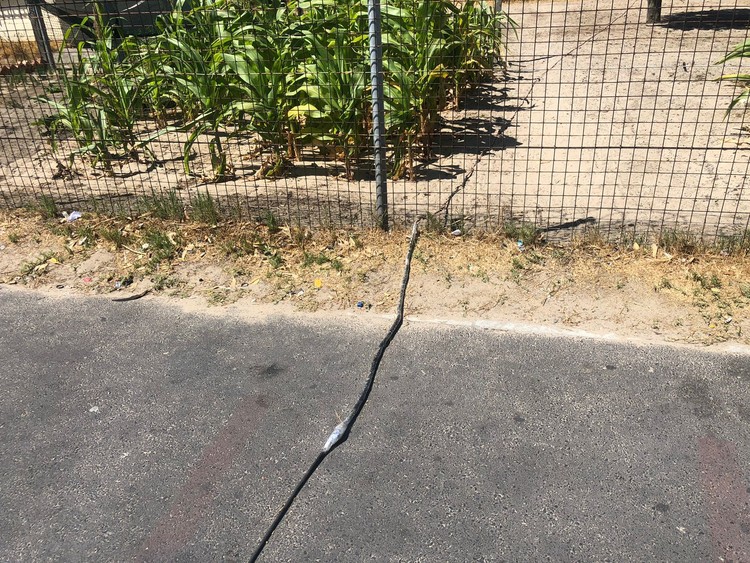Gugulethu school for adults abandoned by government, say residents
St Francis Community Learning Centre has to rely on illegal connection for electricity
Members of the community task team in Gugulethu discuss the state of the St Francis Community Learning Centre. Photos: Mary-Anne Gontsana
- St Francis Community Learning Centre in Gugulethu, Cape Town, has been without electricity since August due to non-payment.
- The once thriving adult skills centre now relies on illegal connections for electricity.
- The school is falling into ruin, with broken doors, leaking toilets, peeling paint and broken roofs.
- The department of higher education and training has remained mum on the situation.
The once formidable skills and educational learning centre for adults, the St Francis Learning Academy in Gugulethu, is now a shadow of its former self.
While hundreds of people still flock to the centre for writing, computer and other skill courses as well as classes to obtain a grade 12 senior certificate, St Francis has been without formal electricity since August. Most of the classrooms are dilapidated with broken roofs and doors, and some of the toilets are broken.
According to the website, the centre has operated as a night school for adults for over 30 years. In the 1970s during apartheid, the St Francis parish was the first classroom set up where educators entered the Langa township illegally to teach. Some 70,000 adult learners have been able to access free to low-cost education and skills training courses.
In 2014 the Department of Higher Education moved the centre to Gugulethu because of space limits.
In 2018, St Francis moved to the premises of the former Songeze Primary School.
The property has become dilapidated and relies on illegal connections from two neighbouring houses to get electricity to run the facility.
According to caretaker Sipho Kussie, water was cut in 2022 due to non-payment, but restored last year.
In August, electricity was cut due to non-payment.
“The school has now resorted to pulling electricity from houses nearby,” Kussie told GroundUp, pointing out two long wires stretching across a busy road from the school to the houses.
We walked past a queue of students with documents hoping to enrol in the school.
The grounds are visibly neglected. Paint is peeling from the walls, the security cameras are covered in dust and cobwebs. The toilet have broken doors and are leaking on the floor. Classrooms are overcrowded.
Wilmont Ntshawuzana, a member of the community task team in Gugulethu, told GroundUp: “This state this place is in is sad. Not even the grass is being cut. What used to be a tennis court is just a piece of tarred ground with rubble and bricks.”
Ntshawuzana said the lack of proper security at the centre left it vulnerable to criminals. “Twenty-one laptops were stolen from the computer lab in 2022. The lab is now used as a normal classroom,” he said.
He said the Department of Higher Education and Training’s (DHET) local office has been unresponsive.
“We are trying as a community … to do what we can. But without any support, it is difficult. We also cannot give up because this is a good initiative,” said Ntshawuzana.
Questions sent to the department on 22 February went unanswered. Instead, the department’s regional communication officer, Maropeng Ramokgobathi, referred our questions to the principal, Phumezo Zita. But Zita told GroundUp over the phone that he was not at liberty to speak to the media.
Mzamo Sidelo, also on the Gugulethu community task team, said, “We have sent emails to the [department’s] central office on a few occasions, but we never receive responses to them.”
One of the dilapidated ablution blocks at St Francis.
A broken toilet at St Francis.
The illegal wire running between the school and the house where it currently gets electricity.
Next: Komani’s unusable R20-million “sport facility”
Previous: Photographing an eviction in Cape Town
© 2024 GroundUp. This article is licensed under a Creative Commons Attribution-NoDerivatives 4.0 International License.
You may republish this article, so long as you credit the authors and GroundUp, and do not change the text. Please include a link back to the original article.
We put an invisible pixel in the article so that we can count traffic to republishers. All analytics tools are solely on our servers. We do not give our logs to any third party. Logs are deleted after two weeks. We do not use any IP address identifying information except to count regional traffic. We are solely interested in counting hits, not tracking users. If you republish, please do not delete the invisible pixel.






